Corporate Officers

Founder
Chief Executive Officer
Chief Scientific Officer
Boris Tabakoff, PhD

Boris Tabakoff was trained as a pharmacist and molecular pharmacologist; he also received training in behavioral genetics . He received his PhD from the University of Colorado in 1970. Dr. Tabakoff’s research endeavors have received significant peer recognition, and he has been the recipient of The William Peck Scientific Research Award, The Research Society on Alcohol Distinguished Researcher Award and Lifetime Achievement Award, The Jellinek Memorial Award for Major Contributions to Alcohol Research, and The Florence Rena Sabin Award for Exceptional Contributions to the University of Colorado Health Sciences Center, among others.
Dr. Tabakoff has provided leadership within the alcohol research community by his active role as President of the Research Society on Alcohol and Founder and President of the International Society for Biomedical Research on Alcohol. Additionally, Dr. Tabakoff has an appointment as a member of the World Health Organization (WHO) Expert Advisory Panel on Drug Dependence and Alcohol Problems, and previously was Scientific Director of the WHO-sponsored Multi-Center Study on State and trait Markers in Alcoholism. Additionally, Dr. Tabakoff helped to lead Federal Government alcohol-research efforts through his past position as Scientific Director for NIAAA’s Intramural Research Program and in his past role as Acting Deputy Director for NIAAA.
In his role as Chairman of the Department of Pharmacology, and through his own current research endeavors, Dr. Tabakoff has encouraged the application of the most modern technology to studies of Alcohol (AUD) and other substance (SUDs). An example of this can be seen in the structure of the Integrative Neuroscience Initiative on Alcoholism(INIA) which is sponsored by the National Institute on Alcohol Abuse and Alcoholism(NIAAA). Dr. Tabakoff is part of the organizing committee and scientific advisory committee for INIA, and he has championed the utilization of several technology platforms as means of solving the complex problems of alcohol dependence and craving. Dr. Tabakoff is also the founder and CEO of Lohocla Research Corporation, which has played an important role in introducing target structure-based drug design into the AUD pipeline development area and has produced genetically based diagnostic tools in the areas of AUD and depression. Through his research career, Dr. Tabakoff has published well over 300 research reports, reviews, and commentaries in the areas of AUD, SUDs, and mental health .




Vice President for Research and Development
Paula Hoffman, PhD

Dr. Hoffman received a B.A. from the University of Chicago, M.S. from Yale University and Ph.D. from Mt. Sinai Graduate School, City University of New York. Her research interests include the molecular mechanisms of alcohol and drug tolerance and dependence, focusing on the role of neuropeptides, neurotrophins and the brain glutamate neurotransmission systems. She is also using microarray (genomic) and proteomic technologies to investigate the genetic basis of alcohol-related behaviors. Dr. Hoffman has authored more than 200 scientific papers and is active in several scientific societies. She served on the Subcommittee on Women in Pharmacology of the American Society for Pharmacology and Experimental Therapeutics. She has served on the Board of Directors for the Research Society on Alcoholism and the International Society for Biomedical Research on Alcoholism (ISBRA) and was also the ISBRA Treasurer and supervisor for the Society office. She chaired the Board of Scientific Counselors for the National Institute on Alcohol Abuse and Alcoholism and has served on Scientific Advisory Boards for several national Alcohol Research Centers. Dr. Hoffman has received The Research Society on Alcohol Distinguished Researcher Award and The Jellinek Memorial Award for Major Contributions to Alcohol Research.



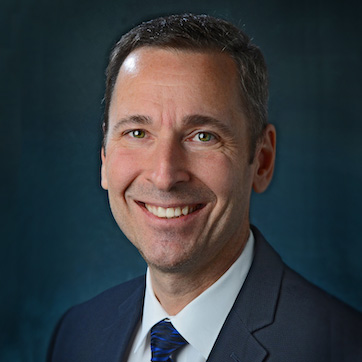
Chief Finance and Operations Officer
Jim Finster, MPA

Jim Finster joined Lohocla Research Corp. in 2019 as COO/CFO, providing financial, administrative, and technological expertise in pursuit of the mission and goals of Lohocla Research. He is proficient in the appropriate application of information technology to facilitate, monitor, and analyze performance and develops customized software as a “full stack” builder and server manager. He is also skilled at creating frameworks for collecting and managing data in many formats. In addition, Jim has a long track record of organizing effective, committed, and productive teams. He has broad experience with the management and development of personnel through building community and fostering loyalty as well as substantial experience with project management and business plan development and implementation. Jim received an A.B. from Hamilton College and a M.P.A. from the University of Colorado Denver School of Public Affairs.



Research Advisory Board
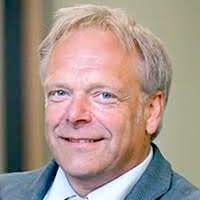
Director
iC42 Clinical Research and Development
Uwe Christians, MD, PhD

Dr. Uwe Christians created iC42 in 2001 and holds the position of Laboratory Director. Dr. Christians received his M.D. (with highest honors) and his Ph.D. in Experimental, Clinical Pharmacology and Toxicology from the Medizinische Hochschule Hannover in Hannover, Germany, where he is a board certified pharmacologist, toxicologist, and clinical pharmacologist. He is a Diplomat of the American Board of Clinical Pharmacology and a Master in Research Quality Assurance (British Association of Research Quality Assurance). Dr. Christians completed postdoctoral fellowships in Biopharmaceutical Sciences (Dr. L.Z. Benet) at the University of California, San Francisco, and in Cardiothoracic Surgery and Transplant Immunology (Dr. R.E. Morris) at the Stanford University Medical School. He joined the Department of Anesthesiology at the University of Colorado in Denver in 2001.



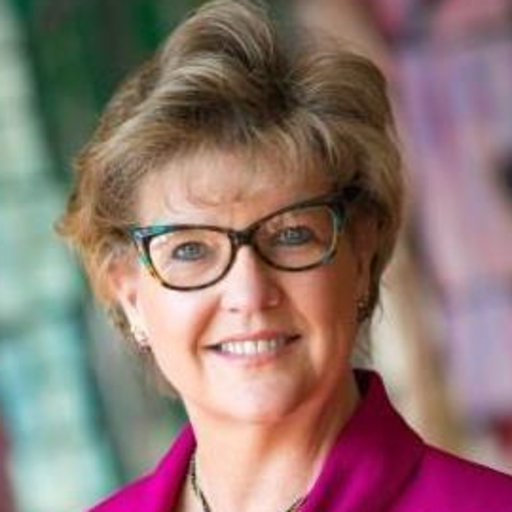
President
Magnolia Toxicology Consulting, LLC
Leigh Ann Burns Naas, PhD

Dr. Burns Naas is an independent consultant providing advice in the areas of nonclinical safety and strategic planning for drug development, and technical due diligence for in-licensing business development opportunities. She was previously Vice President and Head of Nonclinical Safety & Pathobiology at Gilead Sciences and was a Drug Safety Research & Development Therapeutic Area Leader in Oncology and Infectious Disease at Pfizer. Magnolia Toxicology Consulting, LLC provides nonclinical safety strategy development, study planning and monitoring support as well as dossier preparation to meet key milestones including IND/CTA filings, global health authority meetings, and product registration. Dr. Burns Naas experience includes biologics and small molecule development across multiple therapeutic classes.




Professor and Director
Scripps Research Institute
Barbara J. Mason, PhD

Barbara J. Mason, Ph.D. is a Professor and Director of the Laboratory of Clinical Psychopharmacology in the Committee on the Neurobiology of Addictive Disorders at The Scripps Research Institute and is an adjunct member of the faculty at The Rockefeller University, New York, NY, the University of Miami School of Medicine, Miami, Florida, and the University of California, San Diego, CA. Dr. Mason received her Ph.D. in clinical psychology and is licensed in the states of New York and Florida. Dr. Mason was a member of the faculty of Cornell University Medical College (1981-1991) where she initiated a program of clinical research funded by the National Institute on Alcohol Abuse and Alcoholism with a focus on investigating treatment of comorbid depression and alcohol dependence. Results of this work were published as a lead article in the Journal of the American Medical Association (1996, 275(10):761-767) and were the topic of a media briefing by the American Medical Association, as “landmark work of major public health significance.” Moving to the University Of Miami School Of Medicine (1991-2003), Dr. Mason developed a nationally accredited addiction psychiatry fellowship program for advanced psychiatry residents and continued her program of research on pipeline development for relapse prevention by initiating an investigation of nalmefene as a novel treatment of alcohol dependence. This work was chosen by the National Institutes of Health for presentation to the US Congress as a pivotal study of 1999 and was the topic of a press release by the National Institute on Alcohol Abuse and Alcoholism, with publication in the Archives of General Psychiatry (1999, 56:719-724). Dr. Mason served as overall principal investigator for the first US study of acamprosate as a novel treatment of alcohol dependence. This study was conducted in 21 centers across the United States. Dr. Mason developed the research protocol and behavioral therapy materials (www.alcoholfree.info) for this major study involving 601 outpatients with alcohol dependence. In seeking to further optimize the safety and efficacy of pipeline to treat alcohol dependence, Dr. Mason and colleagues conducted the first pharmacokinetic/pharmacodynamic interaction study of acamprosate and naltrexone to evaluate the safety of the combined use of these pipeline (Neuropsychopharmacology 2002, 27(4): 596-606).
Dr. Mason’s work in medication development to prevent relapse in alcohol dependence has been recognized with a MERIT Award from the National Institutes of Health, the Dean’s Senior Clinical Research Award from the University Of Miami School Of Medicine, and the Andrew W. Mellon Foundation Teacher-Scientist Award from Cornell University Medical College. Dr. Mason has served on the National Institute on Alcohol Abuse and Alcoholism National Advisory Council and as a member of their clinical and treatment subcommittee Initial Review Group, as an ad hoc member of the National Institutes of Health Government Performance and Results Act Review Group, as a guest expert for the Food and Drug Administration, and a consultant to the National Institute on Drug Abuse. Dr. Mason is field editor for the drugs and alcohol section of Neuropsychopharmacology and has served as a member of the editorial boards for Alcoholism: Clinical and Experimental Research, Journal of Substance Abuse, and The Ninth and Tenth Special Reports to the US Congress on Alcohol and Health from the Secretary of Health and Human Services. She is currently serving as Co-Director of The Pearson Center for Alcoholism and Addiction Research and pursuing a program of NIH-funded research at The Scripps Research Institute that includes human laboratory studies to rapidly screen potential relapse prevention pipeline and clinical trials to evaluate the safety and efficacy of novel pipeline to prevent drinking relapse in recovering individuals with alcohol dependence.



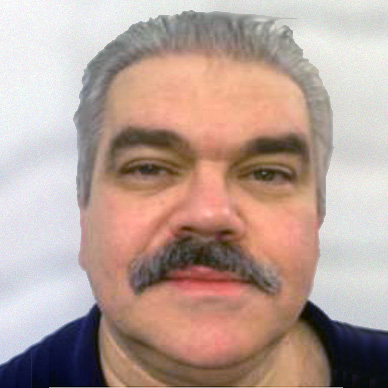
President
Tech Reg Services Inc. (TRSI)
Steven Pikulin, PhD

Steven is currently the president of TechReg Services, Inc. (TRSI). He has personally written well over 100 domestic/international new drug, biologic, and generic CMC submissions for numerous healthcare companies across a wide variety of dosage forms including orally administered immediate and extended release solids, semi-solids and liquids; parenterals; nasal sprays, metered dose, and dry powder inhalation products; peptides; oligonucleotides; liquid inhalation anesthetics; pulmonary surfactants; dermal and transdermal products; medical devices; and a number of other drug therapies. His role in these projects usually involved complete management of CMC development as well as preparation of the corresponding regulatory documentation, cGMP compliance audits and interaction with the regulatory agencies. Prior to founding TRSI in 1999, he held various positions in over 20 years in the pharmaceutical industry in Drug Discovery, Manufacturing Operations, Analytical Research, Quality Control, Quality Assurance, and CMC Regulatory Affairs. He has also taught with various government, trade, and academic organizations, and has presented to the FDA and non-US regulatory agencies on CMC related topics. He has been a visiting scientist at Rutgers University, where he performs select non-GMP API and impurity syntheses under contract, and from 1998 to 2012 was an adjunct professor in the graduate Pharmaceutics/Regulatory Affairs programs at Long Island University, where he taught several courses related to pharmaceutics and regulatory affairs.



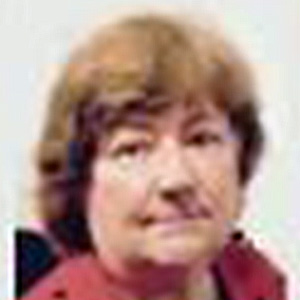
President
Fast-Track Drugs and Biologics, LLC
Janet Ransom, PhD

President and Co-founder of Fast-Track Drugs and Biologics, Dr. Ransom has over 25 years experience in biomedical research including product inception, research, development, clinical trials, and product licensure. She has managed diverse projects including the development of therapeutic cancer vaccines, therapeutic biological products and drugs to treat carcinomas, genetically engineered T cells for the treatment of AIDS/HIV, antitoxins for the treatment of neurotoxins, biological defense vaccines, pipeline for the treatment of substance abuse, and cardiovascular disease in vitro diagnostic tests. Depending upon the development phase of these projects, she was involved with the regulatory development strategy, clinical trial design, pre-clinical development plans, and data analysis and reporting to support product licensure. Dr. Ransom has designed and written Phase 1, 2, 3, and 4 clinical protocols to assess the safety and therapeutic effect of numerous biological and chemical agents for the treatment of malignancies. Furthermore, she has analyzed data from multi-institutional clinical trials and written the Clinical Summary Reports of numerous phase 2 and 3 studies according to the ICH Guidelines for inclusion in Biologics License Applications and New Drug Applications. Her clinical trials coordination activities have included the development of a clinical data management system using an Oracle database, electronic data capturing technology, and web-based applications to collect, store, analyze and report pre-clinical and clinical data in support of therapeutic product development for government and pharmaceutical clients. She established systems specifications and implemented system installation, validation, release for production, and system oversight for multiple large multicenter clinical trials enrolling thousands of study participants.



